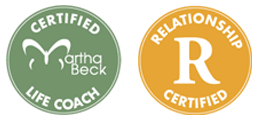I’m shifting gears today from the series of blog posts I’ve written recently focusing on how to clean up your inner world so that you can have more success in finding love. Today I want to share a very simple tool that will help you in ALL of your relationships; not just your love partnership.
Let’s face it, conflict is bound to occur in any relationship. One definition of conflict is:
a serious disagreement or argument, typically a protracted one
It starts with disagreement. Which can be harmless. It becomes conflict or an argument when you don’t communicate in a healthy, adult way. I’d like to suggest that disagreement is a normal, healthy part of any relationship. If you agree with everyone all the time, there is no “you”. You’re just suppressing your opinion to “keep peace”. Or perhaps you’re afraid of conflict because you’ve had some bad experiences with it. I don’t recommend avoiding it. It’s okay to disagree and it doesn’t have to lead to conflict.
But sometimes it does.
There are three basic ways to deal with conflict. The first is to turn away from the other person. This can involve avoiding, running away, shunning, the silent treatment, or sweeping things under the rug. While it’s helpful to sometimes let things go, in a healthy relationship we must learn to deal with conflict or it will turn into resentment. This is actually the least productive way to manage conflict.
The second way is to argue and fight. This goes beyond simple disagreement. With this option (perhaps the most common), one or both partners dig in to their position and are more attached to being right. They use attacks, get defensive, raise their voice, criticize or use other forms of aggression. This can be really damaging.
The third way, and the focus of this post is “The Bridge”. In this method, you start the conversation by getting on the bridge, or starting in the middle on where you do agree.
So if, for example, you are having conflict with your spouse about whether you’re going to send your child to public school or private school, instead of jumping in to make your selling points, start the conversation by talking about how you both want what’s best for your child, how you both want him/her to have a good education, how you both care about the social environment of the school, etc.
John Gottman, a leading researcher on marital success and predicators of divorce, found that conversations tend to end how they start . Starting with what you agree on softens the conversation. It establishes a sense of partnership, that “we’re in this together” versus “I am right and you are wrong”.
What if the conflict is about the relationship, not the kids or something separate?
The bridge is still the answer. Meet in the middle first. State what you both want, what you both value, what you DO agree on first.
Here are a few more tips for effective communication when discussing disagreements:
- Stay in your lane. Focus on communicating your perspective. Don’t attack the other person’s views.
- Don’t interrupt. Let the other person finish.
- Be a better listener. Don’t prepare your rebuttal while the other person is talking. Really listen to what they’re saying first.
- Validate. After you listen, offer understanding of their point of view, even if you disagree.
- Be empathic. Picture yourself in the other person’s shoes and really try on their point of view. Even if you disagree. Especially if you disagree.
What have you found works best in handling conflict in your relationship? Click on comments above near the title and let me know.


Thank you, Arlette! I’m so happy that you are finding them helpful. Lot’s more to come next year 🙂 . Happy holidays to you as well xo
Thank you Ellen for sending these blogs. Although I have been busy with the holidays I have found them to be great reads. I look forward to the new year. Happy Holidays to you and your family!